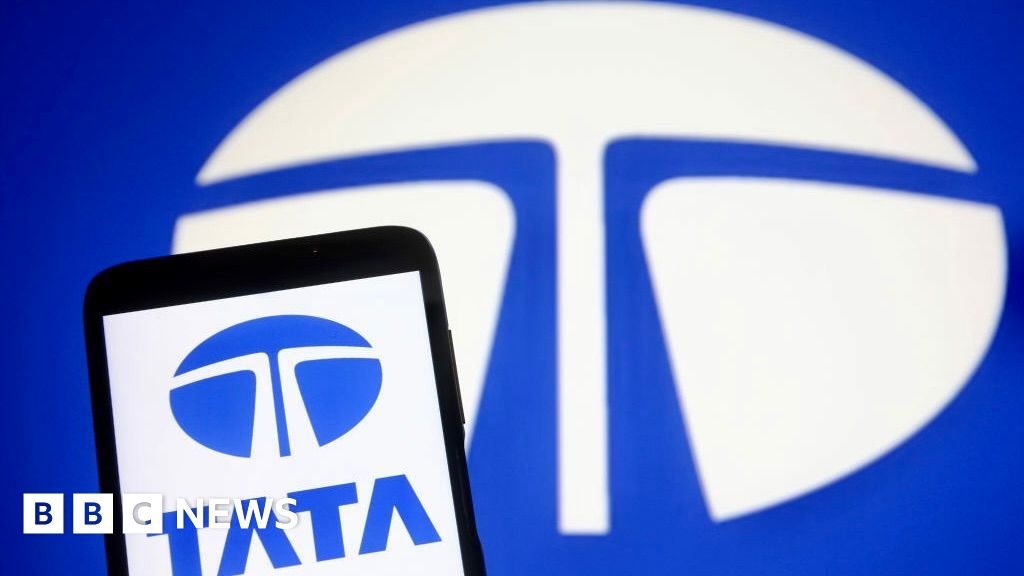A year after the death of Ratan Tata, the iconic leader who transformed the Tata Group into a global, modern, and technologically advanced conglomerate, the sprawling Indian business empire now faces a series of internal and external challenges that threaten its stability and future growth. The Tata Group, a massive enterprise spanning industries from steel and automobiles to technology and beverages, owns prestigious British brands such as Jaguar Land Rover (JLR) and Tetley Tea, and manufactures Apple’s iPhone in India. Yet, despite its global stature and legacy, the group is currently grappling with leadership conflicts, governance issues, and significant business headwinds.
At the heart of the turmoil is a bitter boardroom power struggle among the trustees of Tata Trusts, the philanthropic body that owns a controlling 66% stake in Tata Sons, the group’s unlisted holding company. This internal discord has revived memories of a highly publicized legal battle in 2016, when Cyrus Mistry, the former chairman, was abruptly removed from his position. The recent tensions became so intense that the Indian government had to intervene to prevent the dispute from escalating into another public crisis.
Although an uneasy truce appeared to have been brokered by Delhi’s ministers a few weeks ago, reports have emerged suggesting that Mehli Mistry—a close associate of Ratan Tata and a trustee on the Tata Trusts board—has been ousted. While this development has not been independently verified, it signals the depth of the divisions within the group’s leadership.
Experts analyzing the situation, including Professor Mircea Raianu of the University of Maryland who has extensively studied the Tata Group’s history, interpret the ongoing conflict as a “resurfacing of unresolved business” regarding control and governance. Central to this conflict is the unique structure of the Tata Group itself, where the majority ownership of Tata Sons lies with a philanthropic institution rather than traditional shareholders. This unusual setup has historically provided the group with regulatory and tax advantages and enabled it to pursue charitable initiatives alongside commercial activities. However, it has also generated governance challenges, as the dual objectives of social good and profit-making sometimes clash.
Currently, the rift among the trustees occurs at a particularly difficult juncture. The Tata Group is navigating intense business pressures while attempting to expand into emerging sectors such as semiconductors and electric vehicles. Meanwhile, it is also working to turn around Air India, the national carrier it acquired from the government in 2021, which has been struggling with operational and reputational setbacks—including a tragic crash earlier this year.
The precise causes of the internal discord have not been publicly acknowledged by the Tata Group, but insiders and reports suggest that disagreements over board nominations, approval of funding, and the potential public listing of Tata Sons are at the core. The holding company Tata Sons owns stakes in 29 publicly listed Tata firms, collectively valued at more than $300 billion. Some trustees reportedly seek greater influence over strategic decisions and the power to select board members for Tata Sons. Currently, Tata Trusts has three nominees on the Tata Sons board, holding veto power on major decisions but traditionally playing a supervisory rather than a direct operational role.
A significant bone of contention is the desire of the SP Group, the largest minority shareholder in Tata Sons with an 18% stake, to push for a public listing of the holding company. The SP Group argues that taking Tata Sons public is a “moral and social imperative” that would unlock shareholder value and enhance transparency and governance. On the other hand, many Tata trustees are strongly opposed, fearing that a public listing would reduce the philanthropic trust’s decision-making authority, expose the company to short-term stock market pressures, and undermine the group’s long-term strategic vision—especially given the nascent stage of many of its new ventures.
This debate reflects a broader dilemma facing the Tata Group: how to reconcile the benefits of private, foundation ownership with the demands for greater accountability and market-driven governance. Professor Raianu points out that many large conglomerates in the United States and Europe are increasingly adopting foundation or trust ownership models to promote stability and sustainable growth, often citing the Tata Group as an example. However, private ownership can also limit external scrutiny, potentially fostering internal conflicts and damaging reputation if transparency is lacking.
The ongoing conflict has already begun to impact the Tata Group’s brand and investor confidence. Dilip Cherian, a well-known publicist who has worked closely with former Tata Sons chairman Cyrus Mistry, notes that the group’s image has suffered multiple blows recently

